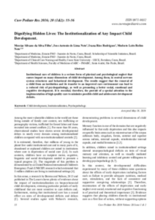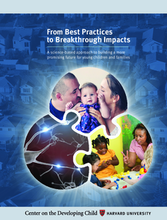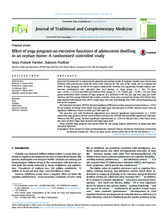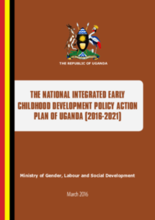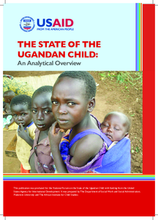Displaying 311 - 320 of 496
Jo Boyden, professor of international development at Oxford University and director of its Young Lives study, has selected five books that challenge Western assumptions and beliefs about child-rearing and how children “should” be raised.
The results of this study suggest that the removal of a child from an institution and its transfer to an improved care environment can lead to a reduced risk of psychopathology, as well as promoting a better social, emotional and cognitive development.
This report from the Center on the Developing Child at Harvard University provides an overview of the science of early childhood development, particularly brain development and the impacts that early experiences have on brain development.
This study implemented a 3-month yoga program with orphan adolescents in Bangalore, India and evaulated the impact of the program on adolescent executive functioning.
This is a longitudinal mixed-method study investigating the impact of parental migration on early childhood well-being and development in Thailand.
This is a longitudinal mixed-method study investigating the impact of parental migration on early childhood well-being and development in Thailand. This report presents the baseline results of quantitative and qualitative surveys.
In this video from the Brainwaves Video Anthology, Dr. Charles Nelson shares some findings from his research on the impacts of deprivation on children's cognitive and brain development through the Bucharest Early Intervention Project.
The National Integrated Early Childhood Development (NIECD) policy of Uganda seeks to address multi-dimensional needs of young children through building more effective and coherent efforts among sectors to achieve positive early childhood development out comes for all children.
This study examined stress, coping and psychological adjustment of 68 children, aged 8–12, who were internationally adopted to Spain.
The State of the Ugandan Child: An Analytical Overview focuses on four thematic areas, namely: health and nutrition, education, child protection and child participation; with emphasis placed on the girl child.

